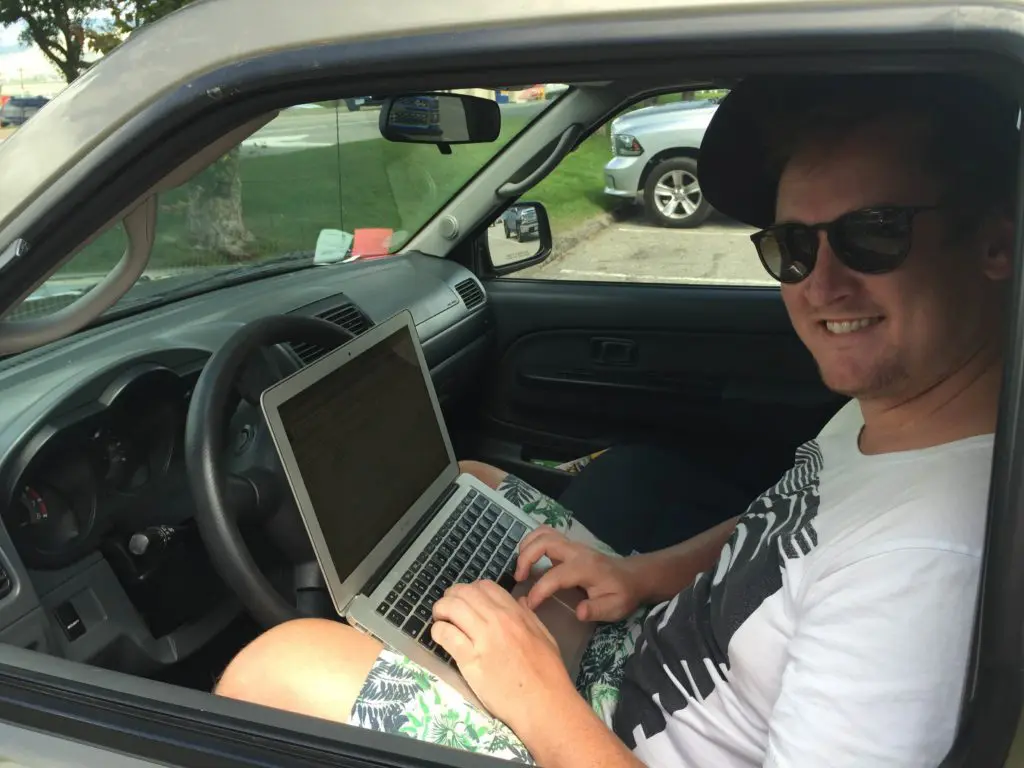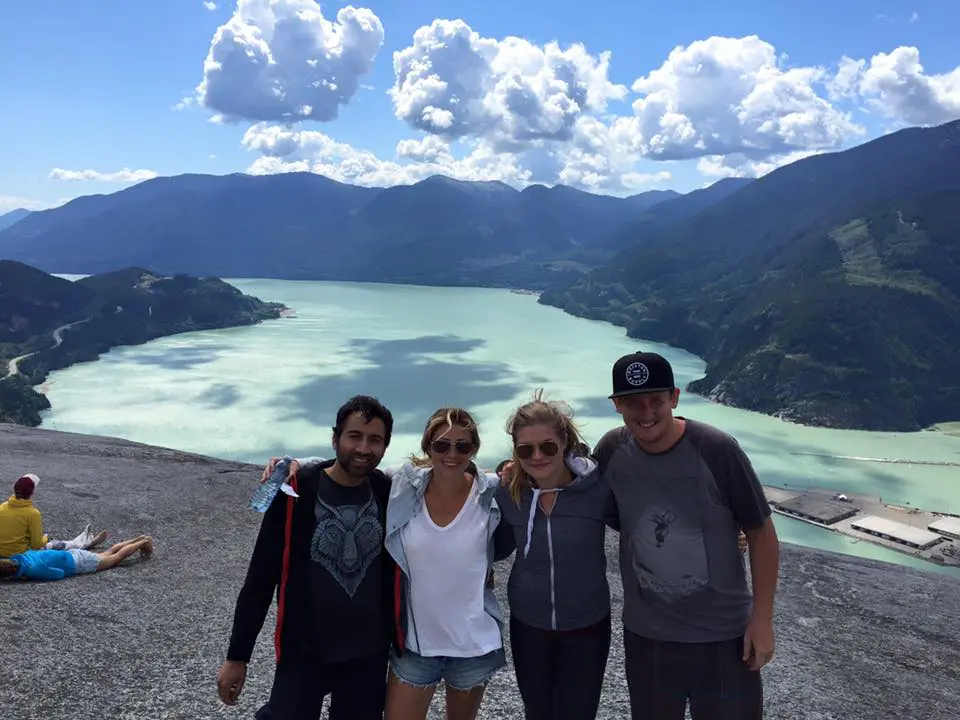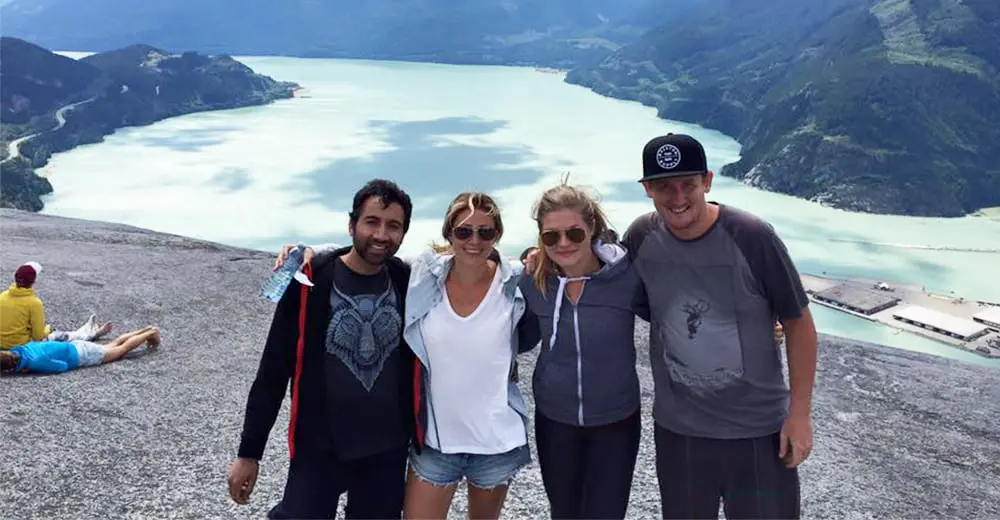I’m finishing this three-part story from the beautiful Okanagan Valley in British Colombia. It’s noon and I’m sat in my car whilst waiting for a table at a famous brunch spot on the outskirts of Kelowna.
Most people would use the opportunity to catch up on Facebook (I still did) or aimlessly scroll through Instagram to kill time.
That’s all well and good, but because of my #digitalnomad life, I use these moments to top up my bank account – which will hopefully cover the all-you-can-eat blueberry waffles that I’m about to destroy.
This ‘working on the fly’ thing is newish for me, because I’m in BC for more than a month, I decided to splurge for a phone/data plan – which makes it possible for me to work from pretty much anywhere – cars, trains, buses, campsites, nothing is off-limits (if you choose the right carrier).
That leads me to talk about some of the mistakes I’ve made over the past 18-months.

Oysters and Caesar (my fave cocktail) in Vancouver
I wish I’d put more effort into finding and signing up for mobile data plans earlier. I’ve definitely lost sleep over Wi-Fi in hostels that doesn’t work or from constantly traipsing through towns looking for a decent café to do my business in – rather than catching waves or exploring forests. Yeah, these plans can be a little expensive sometimes, but it will be worth it in the end.
It would’ve been better if I’d taken a few breaks from work. When you’re working and travelling at the same time it’s hard to imagine needing a ‘holiday’, but you 100% do. Being on-call 24/7 can take a toll on your mental health, so if I did it again, I’d take at least a week off every three months – this would mean turning the emails off (and not checking them).
The last major thing that I’d do differently would be better general planning. My #digitalnomad idea came together only days before starting our adventure, which meant that I had to figure a lot out on the fly – although this actually suited my learning style, I think I would’ve been more successful with a more detailed plan.
Some things that I figured out along the way (but could’ve known before leaving):

Getting some work done in the car (today)
-Starting a paid Skype account so I could make calls to Australia for a few cents per minute
-Getting prepaid data plans for my iPhone and hotspotting the internet to my laptop
-Having a back-up plan for when things go wrong, like a partner that works in an office full-time who can help out when I’m not contactable
Now, to tackle the question that I get asked the most,
‘How can I become a Mobile Travel Agent’?
Hopefully this post and the preceding parts one and two will have given a pretty good idea; but there are two last tips that I think are pretty important.

Hiking the ‘Chief’ in Squamish with friends
Don’t expect this to be your first job in travel. It takes years to learn the trade and build a loyal list of clients. If you’re too impatient to get started in a traditional agency then don’t bother, you’ll crash and burn – and give the rest of us a bad name!
Shop around for the agency group that will suit you best. Technology and know-how have improved a lot over the past few years. This means that there are heaps of choices for Mobile Travel Agents, all of them offering different commission structures, fees and more importantly, ongoing training and support.
Lastly, I promised to reveal if I would do it again.
Well, I planned on doing this for six-months. That was back in August of 2014… I’m still doing it – and I still mostly love it.
There have definitely been moments when I was ready to throw my laptop into the nearest body of water – but these have been overshadowed by moments full of elation and disbelief, knowing that I’ve made this my career – and I don’t regret it at all.






